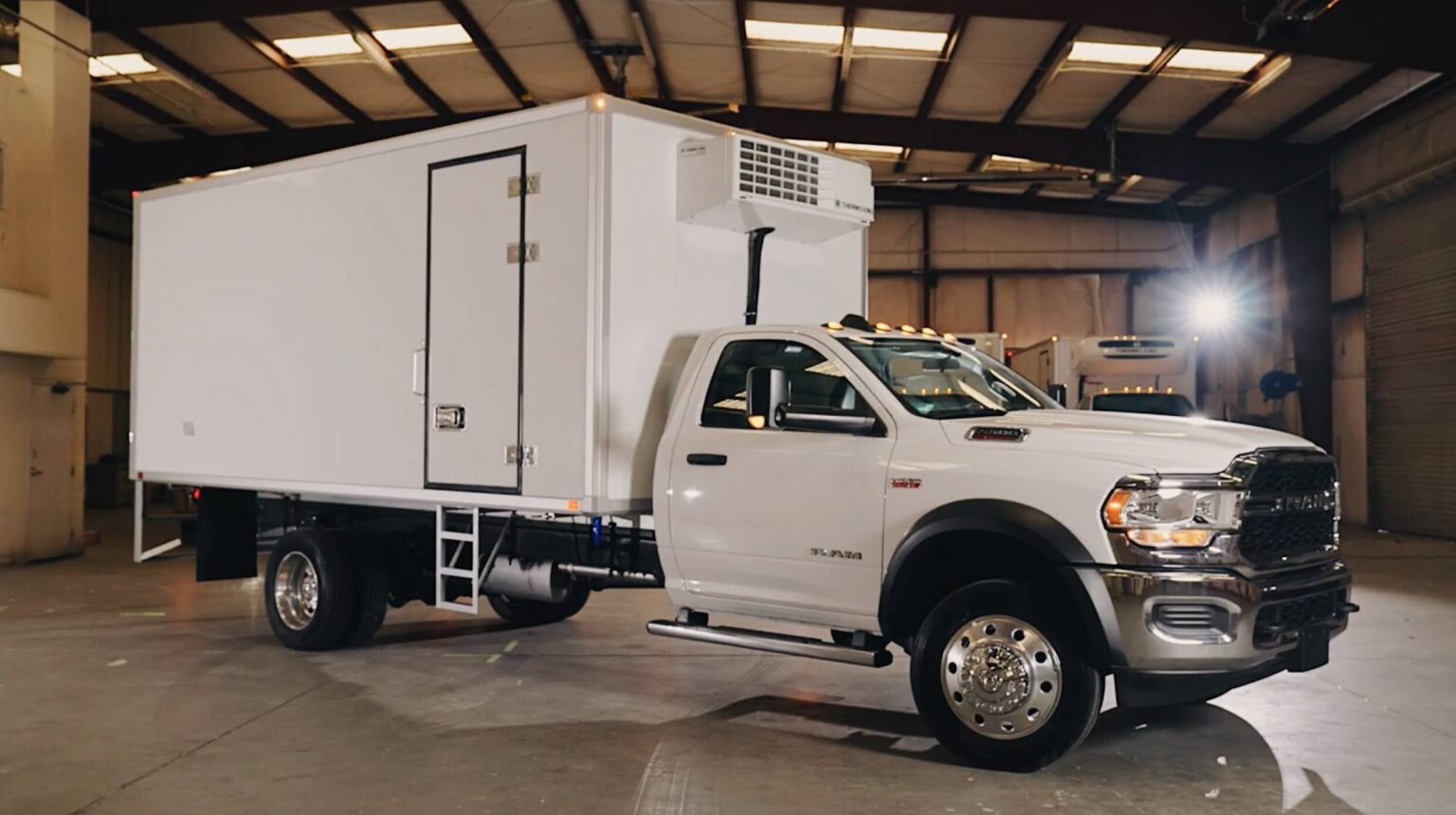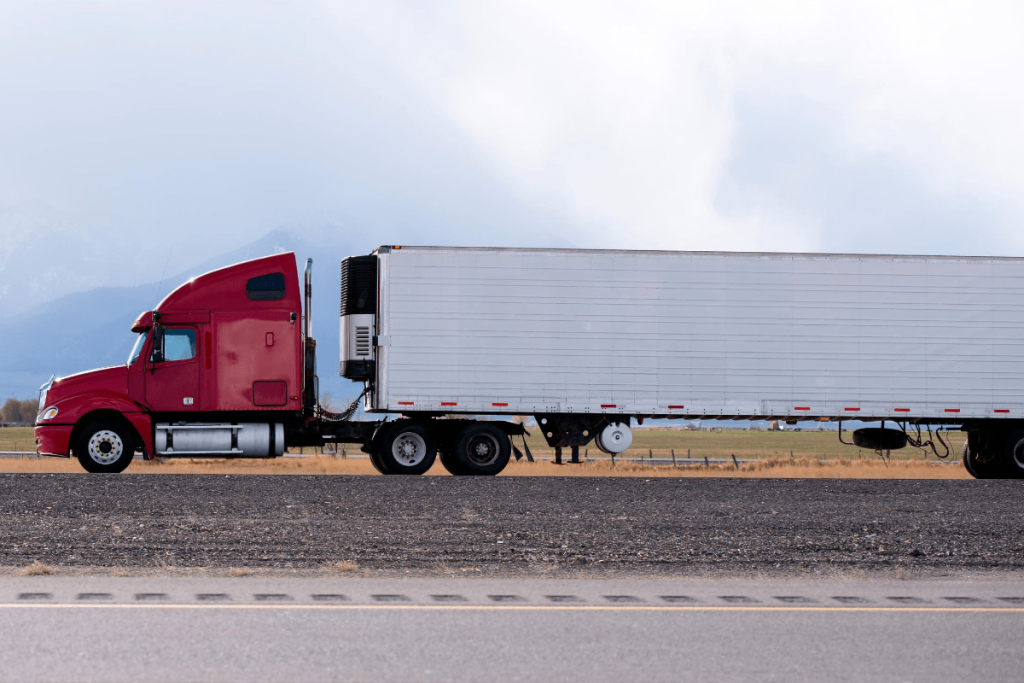Leading Developments in Transport Refrigeration: Enhancing Performance and Safety And Security
The landscape of transport refrigeration is undertaking significant improvement, driven by advancements intended at improving both performance and safety. As these advancements continue to progress, it is important to discover their effects on operational techniques and governing compliance, prompting a more detailed examination of how they reshape the future of transportation refrigeration.
Smart Temperature Checking Systems
In the world of transport refrigeration, clever temperature level monitoring systems have become an essential advancement for making certain the integrity of temperature-sensitive goods. These advanced systems take advantage of Net of Points (IoT) technology to offer real-time data on temperature level variations, enabling operators to maintain optimal conditions throughout the supply chain. By constantly tracking the temperature level of chilled containers and lorries, firms can promptly recognize discrepancies that might jeopardize item top quality.

Additionally, clever monitoring systems frequently include automated notifies and alerts, allowing stakeholders to react without delay to any kind of potential problems. This aggressive method not just decreases the danger of wasting but likewise boosts conformity with governing standards regulating food safety and security and pharmaceutical transport.
The combination of information analytics within these systems also promotes anticipating maintenance, assisting operators to predict potential devices failings prior to they happen. This capability lowers downtime and optimizes operational effectiveness, inevitably leading to set you back financial savings.
Eco-Friendly Refrigerants
Smart temperature tracking systems play a vital function in keeping item top quality, but the performance of transport refrigeration also depends upon the choice of cooling agents used. As ecological concerns climb, the shift towards environment-friendly refrigerants has come to be necessary. Standard cooling agents, such as hydrofluorocarbons (HFCs), are well-known for their high International Warming Potential (GWP), contributing significantly to environment adjustment. In contrast, arising alternatives like hydrocarbon-based refrigerants and hydrofluoroolefins (HFOs) existing reduced GWP options, supplying both efficiency and sustainability.
These green cooling agents not only reduce ecological effect yet also align with worldwide guidelines intended at terminating dangerous substances. Their adoption can result in boosted energy effectiveness, ultimately decreasing operating costs for transportation refrigeration systems. Moreover, making use of natural cooling agents, such as ammonia and co2, has actually gained grip due to their superb thermodynamic residential properties and reduced environmental footprint.
Purchasing environment-friendly refrigerants is not merely a regulative compliance measure; it stands for a critical decision that boosts brand reputation and fosters consumer commitment. thermo king truck refrigeration. By prioritizing sustainable techniques, business can contribute to a greener future while making certain the stability of delivered products
Advanced Insulation Materials
Making use of sophisticated insulation products is essential for maximizing transportation refrigeration systems, as they dramatically boost energy efficiency and preserve constant temperature control. Typical insulation techniques usually drop brief in avoiding thermal transfer, bring about raised power intake and fluctuating temperatures within cooled compartments.
Arising products such as vacuum cleaner protected panels (VIPs) and aerogels supply superior thermal resistance, permitting thinner accounts without endangering performance. VIPs, as an example, utilize a vacuum layer to decrease conductive and convective warm transfer, making them suitable for space-constrained applications. Aerogels, understood for their porous and lightweight structure, provide remarkable insulation while substantially minimizing total system weight.
Additionally, including phase change materials (PCMs) right into insulation systems can even more support temperature levels throughout transportation. These products soak up and launch thermal energy, successfully buffering versus outside temperature level variants.
The assimilation of these advanced insulation materials not just reduces the operational costs connected with energy usage but likewise prolongs the shelf life of temperature-sensitive products. As the transport refrigeration industry remains to evolve, web the adoption of innovative insulation technologies will be pivotal in enhancing both performance and safety in refrigerated transport.
Automated Route Optimization
The efficiency of transportation refrigeration systems is significantly enhanced through automated route optimization, which leverages advanced formulas and real-time information to identify the most efficient paths for shipment. By evaluating various factors such as traffic patterns, climate problems, and shipment home windows, these systems can significantly lower traveling time and fuel consumption.
Automated route optimization minimizes human mistake and subjective decision-making, which can cause ineffectiveness. This innovation allows fleet managers to allocate sources better, guaranteeing that refrigerated products preserve their required temperature throughout the trip. By enhancing routes, companies can additionally improve consumer contentment with prompt shipments.
Moreover, automated systems can adjust to unexpected conditions, such as road closures or sudden website traffic spikes, enabling dynamic rerouting. This adaptability not only shields the integrity of temperature-sensitive items but why not find out more additionally contributes to general operational performance.
Carrying out automated course optimization can lead to significant cost financial savings while decreasing the carbon footprint connected with transport. As businesses progressively focus on sustainability, this advancement stands apart as an essential element in modern-day transport refrigeration, lining up functional objectives with ecological duty. Ultimately, automated route optimization represents a significant improvement in the mission for efficiency and safety in transport refrigeration.

Real-Time Data Analytics
Automated course optimization considerably benefits from the assimilation of real-time data analytics, which provides vital insights right into the performance of transport refrigeration systems. By utilizing real-time information, transport drivers can keep track of temperature variations and tools performance, ensuring that subject to spoiling products are maintained within called for criteria throughout transit. This aggressive technique not just improves the quality of the transported items however additionally alleviates the risk of wasting and loss.

In enhancement to improving efficiency, real-time analytics improves safety and security by making certain conformity with regulative standards for temperature level control. This not just protects public wellness however also strengthens a business's track record - reefer trucks thermo king. As the transport refrigeration market develops, the assimilation of real-time data analytics becomes a cornerstone for driving innovation, sustainability, and functional excellence
Verdict
In verdict, the improvements in transport refrigeration substantially improve both performance and safety within the industry. Jointly, these advancements stand for a crucial evolution in transport refrigeration, making sure conformity with governing standards and promoting a greener future.
The landscape of transport refrigeration is undergoing significant makeover, driven by innovations aimed at enhancing both efficiency and safety.Smart temperature monitoring systems play an important role in keeping item top quality, yet the performance of transportation refrigeration likewise pivots on the option of refrigerants utilized. Their adoption can lead to enhanced power efficiency, eventually decreasing operating expenses for transport refrigeration systems. Ultimately, automated path optimization represents a substantial development in the quest for efficiency and safety and security in transportation refrigeration.
In final thought, the improvements in transport refrigeration considerably improve both effectiveness and safety within the industry.
Comments on “Refrigerated Transportation Thermo King: Keeping Goods Fresh en route”